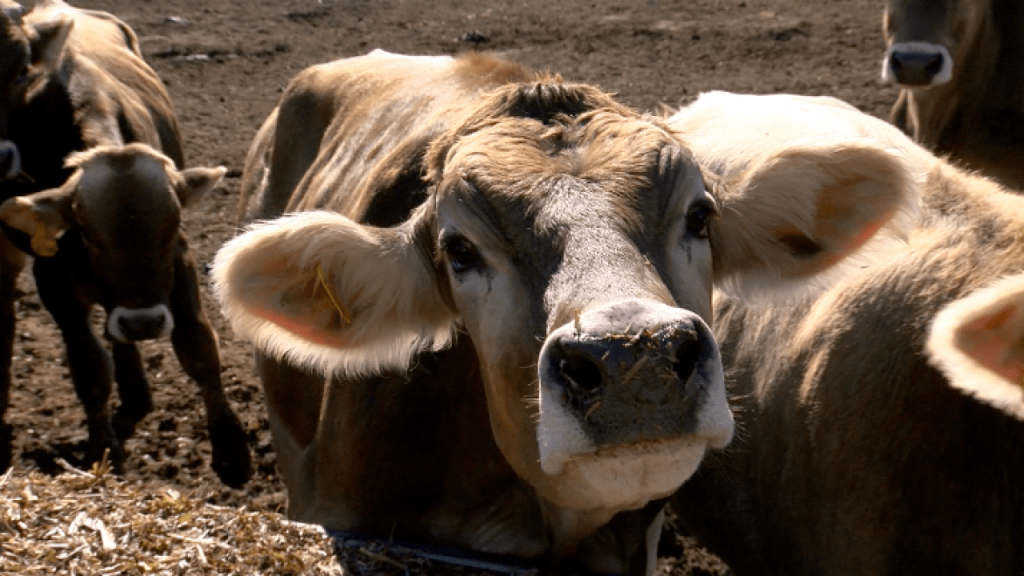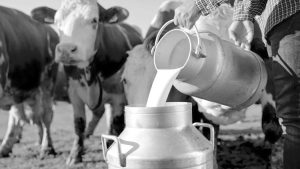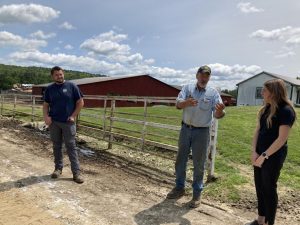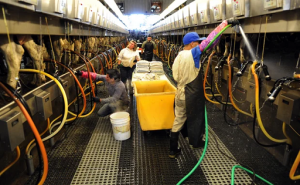
We spoke to a Slinger couple bringing some homegrown relief to their fellow farmers.
We caught up with the Mayer family, after they successfully milked 60 cows before most of us even woke up. They will do it all over again in the afternoon.
“Keeping them clean and dry is a challenge but its the most important thing for quality milk!” exclaimed Dwight Mayer. He is a sixth-generation dairy farmer.
His daughter cleaning up beside him will be generation seven, and her 7-month-old baby Ada is generation eight.
This is not just a family business to Dwight, this is his entire life.
“It was very typical a 16 to 17 hour day. Now I milk twice a day and its relaxed some the farms are under enormous pressure. It’s financial pressure.”
This is a pressure his wife Shelly knows is all too common in this industry.
“On a bad year the farmer does not make up their losses through farm subsidy programs that is absolutely a falsity. In fact, you could lose $100,000 to $150,000 in the dairy industry,” said Shelly Mayer.
Dwight explained more of the financial pressures for dairy farmers.
The milk prices right now I wanna say is $16. Break-even point for most farms is around $19 so now people are producing milk at barely a break-even point.”
Dwight says more and more neighbors selling their land. What used to be farm fields and woods near him, “There’s nine subdivisions within two miles of us.”
That’s leading to a staggering statistic. According to the Centers for Disease Control and Prevention, jobs agriculture carry the fourth-highest suicide rates among industry groups. That is behind mining, construction, and automotive repair.
As more farmers have felt secluded the Mayer family has reached out to our community. This includes contributing to a podcast about farming and mental health.
According to the American Farm Bureau Federation, signs a farmer may be in trouble includes:
– Decline in appearance of farmstead.
– Changes in eating habits and sleeping habits.
– Mood swings.
The Mayer family have expanded their horizons. They use one of their historic barns as a wedding venue – Folk Song Farm.
Even through tough times, Shelly and Dwight say they would not want to be doing anything else. Shelly recalls, “I looked at him and I said, ‘you know, we both have our college educations we could do something else what else do you wanna do?’ and he looked at me and said, ‘absolutely nothing this is my dream this is what I wanna do.'”
So the next time you drive by a farm, remember they are not just working to feed their own family but yours as well.
Here are ways you can help someone in emotional pain, according to the National Institutes of Mental Health:
– Ask the person how they are doing.
– Stay in touch with them.
– Help them stay connected as well.
There is a 24/7 Wisconsin Farmer Wellness Hotline: (888) 901-2558.
There is also a Hopeline text service: Text “HOPELINE” TO 741741.
If you or someone you know is struggling with suicidal thoughts, there is help. Contact the National Suicide Prevention Lifeline at 800-273-8255.
























